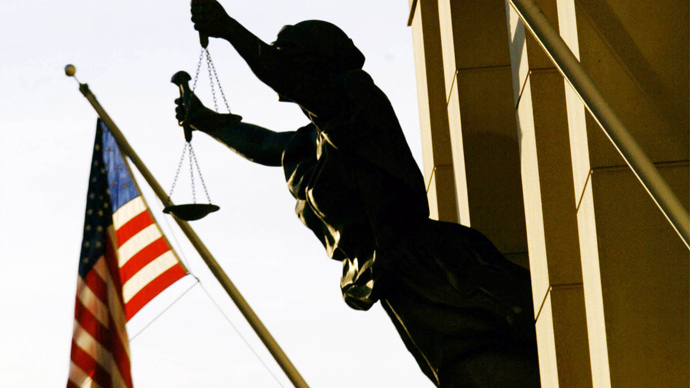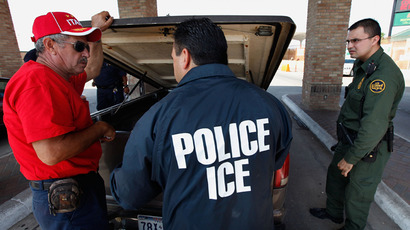California high court considers law license for undocumented immigrant

The California Supreme Court heard oral arguments this week on whether an undocumented immigrant should be allowed a law license, shadowing similar cases in other states and highlighting stunted attempts by lawmakers at reforming US immigration policy.
Sergio Garcia was brought to the US from Mexico as an infant,
returned to his home country briefly as a child, and came back to
the US at age 17 once his father became a permanent US resident.
Garcia’s own visa application was approved in 1995, though he’s
yet to receive a visa. He subsequently received college and law
school degrees and passed the state bar exam.
New York and Florida are hearing similar arguments from
undocumented immigrants seeking advancement in their lives and
careers after several years in the US.
“These individuals have waited long enough, and we as a
society are served by letting them give back to the state and the
country,” Nicholas Espiritu, a staff attorney at the National
Immigration Law Center in Los Angeles - which joined in a brief
supporting Garcia - told the Christian Science Monitor.
A main concern in the case is whether a federal law - The
Personal Responsibility and Work Opportunity Reconciliation Act
of 1996 - prohibits undocumented immigrants from receiving
“any grant, contract, loan, professional license, or
commercial license provided by an agency of a state or local
government or by appropriated funds of a state or local
government” without a state law permitting it.
Garcia is supported by the California attorney general’s office,
the California Committee of Bar Examiners, and the American Civil
Liberties Union, among others. They say law licenses are a matter
of the courts, not government agencies, and that it’s up to a
state to admit whomever it wants into the state bar.
The US Department of Justice and anti-illegal immigration groups
are opposing Garcia’s bid. The Department of Justice argues the
law encompasses a broad swath of occupations, including lawyers.
Others argue that Garcia should not be allowed to practice
because his mere presence in the US violates federal law.
Supporters counter that although Garcia is not currently allowed
legal employment in the US, he could offer pro bono assistance,
open a solo practice, or offer legal counsel to foreign entities.
Florida’s high court is hearing a similar case, though the
plaintiff has a work permit via the deferred-action program. The
two-year program gives undocumented immigrants who arrived in the
US before the age of 16 the opportunity to work.
The cases highlight repeatedly stalled attempts in Washington for
the reform of US immigration policy.
"The law is the law, but this shows yet again that our broken
immigration system is hurting the economy," a White House
spokesman said in an e-mail to the Christian Science Monitor.
"Many folks that are denied professional licenses because of
their immigration status are seeking to establish businesses that
would create jobs and contribute to the recovery."
If his case fails before the state Supreme Court, Garcia said
he’ll push for a legislative solution or take his argument to a
federal court.














